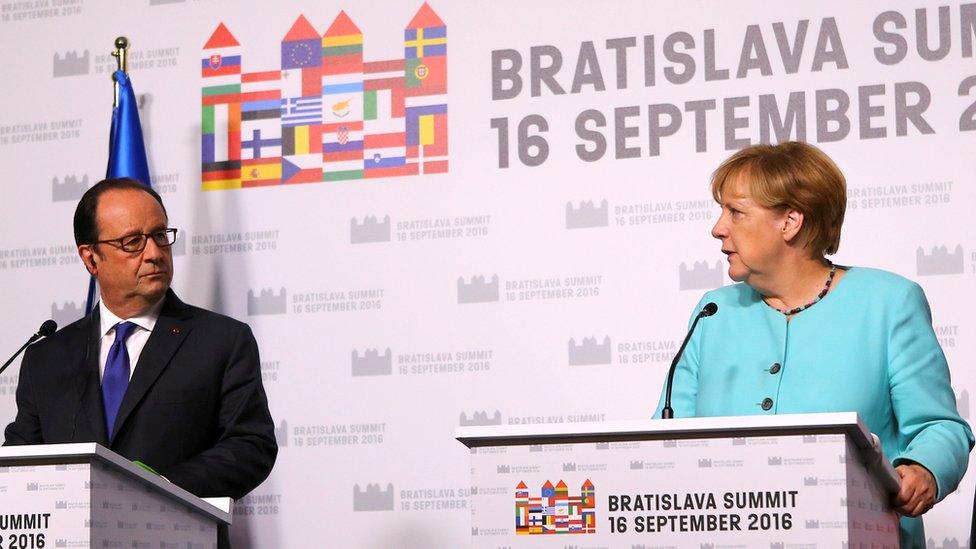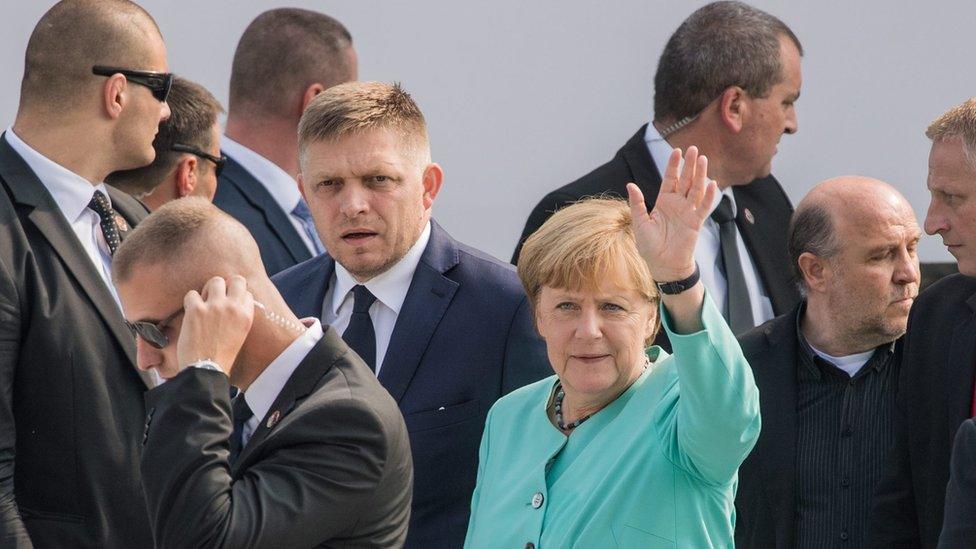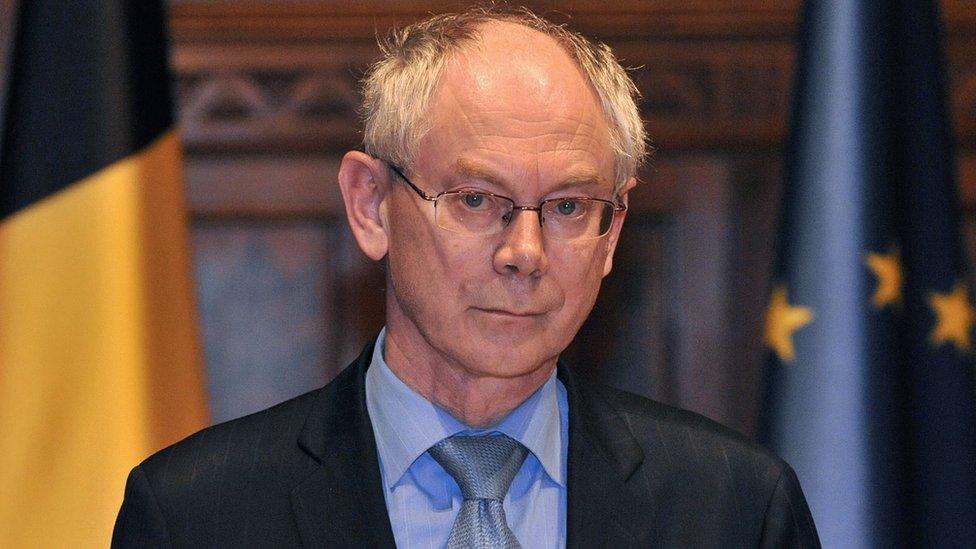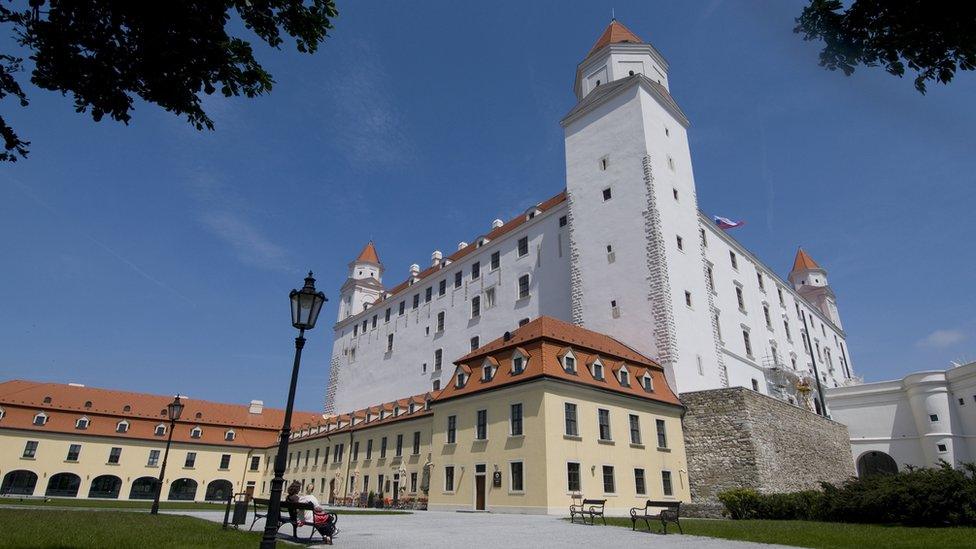Bratislava EU talks bring Merkel-Hollande pact for renewal
- Published

Old-style Franco-German solidarity was on show again at the heart of the EU
The leaders of France and Germany say the EU has agreed on priorities for reinvigorating the bloc despite the "critical situation" created by the UK Brexit vote.
They showed symbolic unity by holding a joint press conference after the summit talks in the Slovak capital Bratislava.
It was the EU's first major meeting as 27 - without the UK present.
German Chancellor Angela Merkel and French President Francois Hollande said the migrant crisis was a key issue.
"We didn't dodge anything," Mr Hollande said. "We decided that together we have to deal with the migration issue, while respecting the right to asylum."
Tension over migrants
There is a deep rift over the influx of migrants - including many refugees from Syria - as Slovakia, Hungary, the Czech Republic and Poland refuse to accept EU quotas for housing asylum seekers.
They are under pressure to accept quotas so that 160,000 refugees at camps in Greece and Italy can be relocated.
"We talked very concretely about what we are going to do to tackle issues like immigration," Mrs Merkel said. She spoke of an emerging "Bratislava spirit" of co-operation to tackle the toughest issues facing Europe.
"We will all need to make compromises," she admitted.
"We agreed that Europe finds itself in a critical situation after Brexit but that there are also other issues which we need to tackle together."

After "frank" talks Chancellor Merkel and the other 26 leaders went on a Danube boat trip
German Chancellor Angela Merkel said on Thursday that the European Union was in a "critical situation" as EU leaders met
They did not dwell on the thorny issue of Brexit, as they are waiting for the UK government to trigger the process of withdrawal from the EU.
The EU leaders agreed to step up joint efforts to strengthen the EU's external borders, integrate European defence, fight terrorism and boost economic growth.
The one-day Bratislava meeting launched a series of confidence-building meetings, where a new EU "roadmap" should be worked out.
They will culminate in a Rome summit in March, when the 60th anniversary of the EU's founding Treaty of Rome will be celebrated.


No longer toeing the line - Katya Adler, BBC News, Bratislava
Remember Greece last year, with its euro woes. Back then, Germany's powerful Chancellor was able to coax, or bully, other EU leaders to toe her line, giving the impression at least of a united EU.
But Mrs Merkel's credibility was damaged by the migrant crisis and her grip is weakened. Many EU leaders blame her for the hundreds of thousands of refugees who flooded across their borders. Groups of countries have begun to openly defy her.
None of the leaders here in Bratislava wants to see the EU collapse, however. With so many rifts and splits, they are concentrating on the small number of issues - youth unemployment and security, for example - that they can easily agree on.
The harder stuff, such as a future trade deal with the UK, will be left for another day.

Citizens from Ireland, Latvia, the UK, France, Lithuania, and Germany give the BBC their views on the future of the European Union
A note on terminology: The BBC uses the term migrant to refer to all people on the move who have yet to complete the legal process of claiming asylum. This group includes people fleeing war-torn countries such as Syria, who are likely to be granted refugee status, as well as people who are seeking jobs and better lives, who governments are likely to rule are economic migrants.
- Published15 September 2016

- Published13 September 2016
